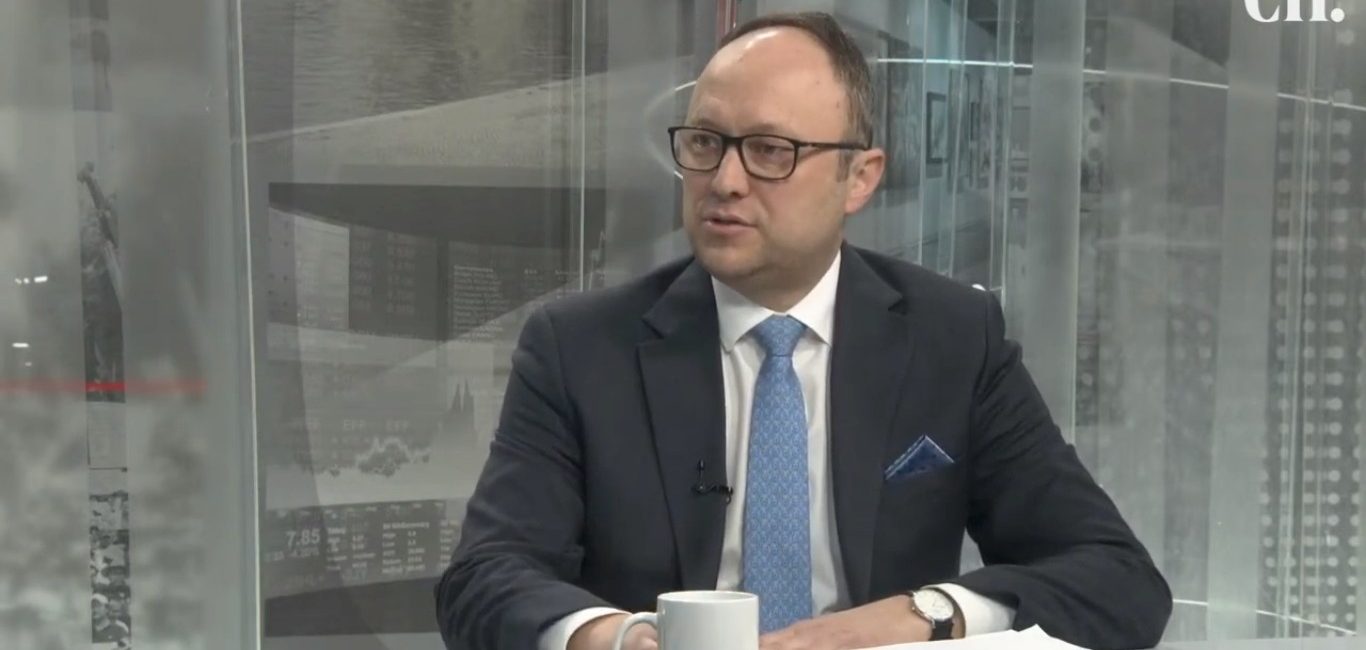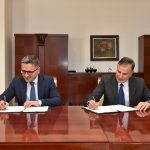12th March 2024 Skopje – We managed to increase the minimum wage, the average wage, as well as the pensions, as a result of the reached systemic solution, which, in just two years’ time, provided for 30% increase in pensions, with the minimum wage reaching Denar 22,500 from the previous Denar 15,000, growing by over 50%. Average wage is also growing, amounting to Denar 40,000 in December 2023, being by 33% higher than the initially projected average wage of EUR 500, as we promised. This was pointed out by Deputy Minister of Finance, Filip Nikolovski in his guest appearance in the morning show of “Sloboden Pecat”.
“Two years ago, we came up with a systemic solution as per which pension indexation is carried out twice a year. As of this month, pensions will increase by around 5.5%, with their overall increase exceeding 30% in 2 years, owing to the systemic solution we reached, since no citizen deserves to be blackmailed in any way. When a system is efficient, all this can be attained, as evident from the past 2 years. Minimum wage growth systemic solution was also put in place. During this month, minimum wage will be increased by additional 12%, thus reaching Denar 22,500. As of 2 years ago, minimum wage amounted to Denar 15,000, while amounting to Denar 20,175 so far, which will be higher than 50% with the most recent increase thereof. As per the latest data, average wage of the State Statistical Office amounts to nearly Denar 40,000, being by 33% higher than the initially projected average of EUR 500 as we promised in the pre-election period. Average wage amounts to Denar 40,000, which is to reach EUR 1,100 in the next four years as per the created systemic solution, Deputy Minister Nikoloski pointed out.
He also touched upon the development policies and the support of the economic growth projected at 3.4% this year. “This projected growth is reachable, to be also underpinned by private investments, as well as investments projected in the Budget. Capital investments amounted to all-time high EUR 708 million, reaching EUR 1.2 billion in both 2022 and 2023. Most of the investments were made in the field of infrastructure, taking a long time to be fully implemented, which dynamics is expected to pick up speed next year, Nikoloski said.
He thereby added that all capital investments cannot be implemented in just a year, since they entail administrative preparatory activities, a plan, and a project, whereas the effects therefrom will be visible in the following years. Similarly, we expect for the field activities for implementing the projects pertaining to Corridors 8 and 10d to get going.
As per Deputy Minister, growth will be additionally boosted by the EU support of around EUR 900 million via the Growth Plan of the Western Balkans, whereby it is expected for the first tranche amounting to EUR 150 million, to be disbursed in the course of this year.
“These funds will be aimed at speeding up the reform process and scaling-up the investments. One third thereof will be in the form of grant, whereby the other credits lines will be extended under favorable terms and conditions, bearing low interest rates, with repayment period of up to even 40 years. We should take advantage thereof, all to the end of accelerating growth and getting closer to joining the EU”, Nikoloski said.
He pointed out that business sector is also supported, which private investments contribute to attaining the projected growth.
“By extending several credit lines, over EUR 300 million was provided, being made available to the business sector through the Development Bank, with considerably low interest rates thereon. Funds are made available via the business banks and the companies have demonstrated interest therein”, Nikoloski said.
He announced that with the country joining SEPA next year, domestic companies will be able to make payments simply within the EU, thus lowering the costs thereof.
“Western Balkan countries and Republic of North Macedonia will join SEPA, thus simplifying the payments of all beneficiaries, i.e. payments will be made solely in euros, thus lowering companies’ costs, and making them more competitive. Hence, Western Balkan countries will be able to make savings of over EUR 600 million annually. It is expected for the first phase of this process to be completed this year, hence, our country can join SEPA next year, Deputy Minister of Finance, Filip Nikoloski pointed out.
















